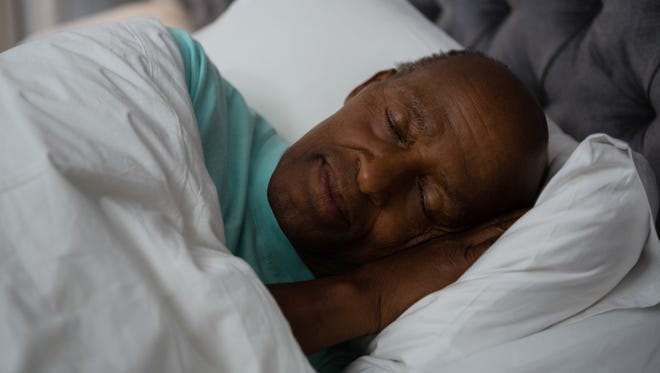No products in the cart.
Healing
Older adults want 7-9 hours of high quality sleep per night time
Q: Years ago, I slept like a rock. Could my age be affecting my sleep?
A: It is well documented that adequate, quality sleep is necessary throughout your lifetime. The amount of sleep you need varies with age.
Growing children need more sleep than adults.
According to the National Institute on Aging, older adults need 7-9 hours per night of quality sleep. However, unique situations experienced by seniors can affect sleep quality and duration.
Previous One Senior Place columns:
They know things you don’t:Why you need an attorney for estate planning
Long-term care:Insurance options for long-term care have improved. Know your options
Take a break:Caregivers can struggle during the holidays. Here are helpful tips.
Quality AND Quantity
Perhaps you spent seven hours in bed last night, but did you get QUALITY sleep?
Sleep is meant to be restorative. Deep sleep and REM (rapid eye movement) sleep are critical for the body to effect repairs on itself.
Yet medications, pain, anxiety and certain physical conditions can all affect the quality of your sleep.
That glass of wine before bedtime may hurt you more than it helps, since alcohol consumption can delay sleep and affect its quality.
Falling asleep to TV might not be such a good idea either, since televisions, computers and cell phones all contain disruptive “blue light.”
Loud snoring?
Sleep apnea is a potentially serious sleep disorder in which breathing repeatedly stops and starts.
Other disruptors include restless leg syndrome and periodic limb movement disorder, as well as Alzheimer’s disease and other dementias.
If you experience sleep disturbances for more than a month, it’s time to speak with your doctor.
Sleep hygiene
No, sleep hygiene is not about showering before bed.
It’s about creating a positive sleep environment and a good sleep ritual.
Only use your bed for sleeping or sex. It shouldn’t be your desk or late night snack station.
If insomnia strikes, get up and do something else and then return to bed to give it another go.
Avoid watching the clock, since worrying about sleep can further delay it.
Sleeping safely
Surprise! Older adults may get up frequently during the night to go to the bathroom.
Orange or yellow colored nightlights will light your path to the bathroom without creating sleep disturbance.
Remove rugs that might create a fall risk. In case of emergency, a phone should be near your bed.
Not another prescription
You don’t necessarily need medication for a good night’s rest.
Before going that route, consider trying meditation, acupressure techniques or herbal supplements to help with your Zzz’s.
YouTube videos abound that address relaxation techniques.
For additional help, Counseling Resource Services offers assistance through One Senior Place locations in Viera and Greater Orlando.
If you’ve exhausted all options and are still struggling with insomnia, consult your doctor.
One Senior Place is a marketplace for resources and provider of information, advice, care and on-site services for seniors and their families. Questions for this column are answered by professionals in nursing, social work, care management and in-home care. Send questions toAskOSP@OneSeniorPlace.com, call 321-751-6771 or visit One Senior Place, The Experts in Aging.
Brenda Lyle is a Certified Care Manager and Certified Dementia Practitioner with One Senior Place, Greater Orlando.


